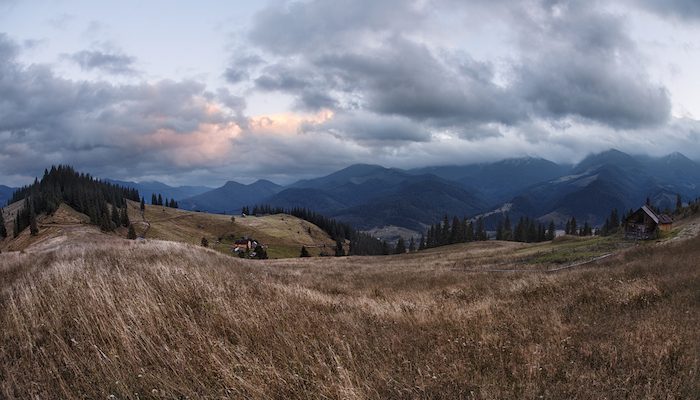
This is an excerpt from Ukraine’s Euromaidan: Broadcasting through Information Wars with Hromadske Radio by Marta Dyczok
Available now on Amazon (UK, USA, Ca, Ger, Fra), in all good book stores, and via a free PDF download. Find out more about E-IR’s range of open access books here
Teenagers in the Carpathian Mountains are helping Ukraine’s war effort. They’re collecting funds, buying supplies, and driving them to the other end of their country where the fighting is.
I heard about this during my weekend trip to a picturesque village that I’ve been visiting for years from a 19-year-old blond woman who just obtained her teaching certificate. She’s been volunteering for months, despite her grandmother’s and brother’s disapproval.
At first she didn’t want to talk to me about it, not knowing how I’d react. Opinion in the village is divided. Some, like her, are doing what they can to oppose Russian aggression against Ukraine. Others can’t understand why men are fleeing from the east to Western Ukraine, rather than defending themselves against pro-Russian armed separatists and Russians who are invading and killing.
I heard stories about these internally displaced men behaving boorishly. I also heard about locals taking advantage of the situation, falsely using the names of known pro-Ukrainian activist groups for personal gain, and in doing so, discrediting their efforts. My young friend told me about an incident. Some guy wanted a seat in a crowded bus and threatened another passenger who refused to give his up saying, ‘I’m from the Right Sector, if you don’t give me your seat, we’ll come after you.”
The Right Sector emerged during Ukraine’s winter Euromaidan protests and is controversial because of their right wing ideology and advocating the use of force. But they’ve been active in opposing Russia’s war against Ukraine. “I know that guy’s not part of the Right Sector,” said the young woman.
Her disapproving grandmother, who was listening to our conversation, joined in. “It was like that during World War II,” she said. “All sorts of horrible thing were done by people, claiming to be part of the Ukrainian Insurgent Army, to discredit them.”
I remember hearing stories from the elderly woman’s brother about what had gone on in that village during the Second World War. He’d showed me the basement where he and his high school buddies hid Ukrainian partisans who were fighting against the Red Army.
There’s no fighting in the Carpathian Mountains today, and his great-niece is not sheltering partisans. She’s applying to university in the fall, and going abroad for the summer. But she inherited her great-uncle’s spirit, and is now helping to send supplies to men who are not running away from – but going into – the zone of combat and resisting an invading aggressor.